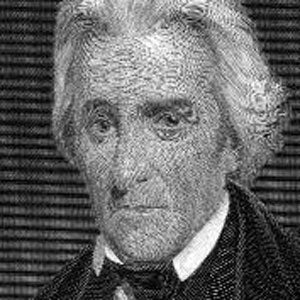
A popular and populist figure, Jackson could not have been more different from the distinguished intellectuals who preceded him. Born in the backwoods of Carolina, he received scant education; fought in the Revolutionary War as a 13-year-old (and was left with a permanent scar on his face after being struck by a British officer while in captivity); and spent much of the remainder of his youth as a notoriously dissolute student.
He later fought in the war of 1812-1814, and became famous as the general who administered the final crushing defeat to the British at New Orleans in 1815. (News that the war was over had not yet filtered through.) He added to his reputation for boldness by invading Florida in pursuit of the war against the Seminole Indians in 1817-1818.
He ran unsuccessfully for the presidency in 1824 and spent most of the next four years preparing his campaign for 1828. The election was the dirtiest that US had yet seen, with vicious mudslinging on both sides, but Jackson ended up winning comfortably and went on to prove a surprisingly effective president.
Generally a supporter of slavery and the rights of southern states, he nonetheless fought one of his defining battles on the issue of "nullification". When South Carolina sought to nullify a federal tariff of 1828, Jackson insisted that such unilateral action was tantamount to treason, and threatened to uphold federal supremacy by force if necessary. The rogue state (mollified by a tactful reduction of the tariff) eventually backed down.
He also engaged in a high-profile power struggle with the Bank of the United States, vetoing a bill to renew the charter of what he regarded as an overprivileged monopoly rather than a valuable national institution. It was a long and bitter fight. "The bank is trying to kill me," Jackson observed to Martin Van Buren at one point. "But I will kill it!"
But Jackson's stance was widely seen as representing the interests of the common man, rather than the political elite, and in 1832 he was re-elected with more than 56 per cent of the popular vote (and almost five times as many electoral votes as his opponent, Henry Clay, who had supported the bank).
Jackson's opponents considered him autocratic. Unlike previous presidents, he rarely deferred to Congress in policy-making but, instead, used his power of the veto and his party leadership to pursue his own agendas. He was also accused of rewarding supporters with government jobs. "If you have a job in your department that can't be done by a Democrat, abolish the job," he allegedly said. (He could also be merciless to his enemies. "He could hate with a Biblical fury," wrote one biographer, "and would resort to petty and vindictive acts to nurture his hatred.")
Conscious of the need to keep his Southern supporters sweet, he opposed abolitionism and encouraged westward expansion at the expense of Native American tribes.
Perhaps not surprisingly, it was during his presidencies that the divided Republican party began to resolve into, on the one hand, the Democratic Republicans, or Democrats, adhering to Jackson; and, on the other, the National Republicans, or Whigs.
Despite his years in office, Jackson never shook off his reputation as a coarse, violent-tempered man. But the reputation did no harm to his popularity. After his second term, he retired to the Hermitage, a mansion he had built near Nashville, Tennessee. His health deteriorated painfully, and he died there in June 1845.
In his own words
"I know what I am fit for. I can command a body of men in a rough way; but I am not fit to be President."
"In general, the great can protect themselves, but the poor and humble require the arm and shield of the law."
"Our Federal Union: it must be preserved."
In others' words
"A man of intelligence, and one of those prompt, frank, ardent souls that I love to meet." Aaron Burr
"A barbarian who could not write a sentence of grammar and hardly could spell his own name." John Quincy Adams
Minutiae
He married Rachel Robards, a divorcée, in 1791. It later emerged that her divorce had not been finalised at the time, so he married her again in 1794. This incident came back to haunt them. In the 1828 election campaign, Jackson's opponents made much of this "adultery", and Jackson blamed Rachel's distress at this for her sudden death – after his victory but before his inauguration. His niece, Emily, acted as his first lady; followed, after her death, by Sarah Jackson, the wife of his adopted nephew.
A prolific dueller, Jackson killed at least one man, in 1806: Charles Dickinson, who had besmirched his wife's honour. The bullet fired by Dickinson remained lodged in Jackson's chest for the rest of his life.
Two other bullets – the legacy of a brawl in 1813 – stayed in his arm for 20 years before being removed.
As a teenager, Jackson had an unfortunate habit of slobbering. The teasing that this provoked has been blamed for his penchant for violence.
His hobbies included cockfighting and racehorse breeding.
Jackson survived the first attempt to assassinate a US president. Richard Lawrence, a madman, attacked him in the Capitol in 1835 with two pistols – both of which, miraculously, misfired.
He was the first president to ride on a railroad train.
His face can be seen on $20 notes.
Join our commenting forum
Join thought-provoking conversations, follow other Independent readers and see their replies
0Comments